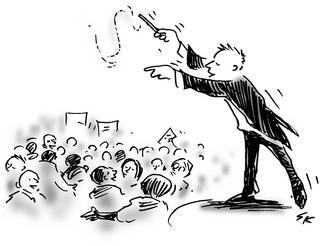
Is your upcoming meeting a strategic planning session?
A sales or project launch?
A departmental communications day?
Or, perhaps, teambuilding for an intact management or project team?
Whichever it is, it undoubtedly involves a significant investment.
First you have the value of the participants’ time, more precious than ever in this time-starved work world. Second, add in the cost of any facility rental, AV equipment, travel, food and lodging. Finally, and most important, there is the opportunity cost if, following your meeting, plans and decisions are not carried out or your team’s behavior does not change for the better.
When to Use a Facilitator
One way to maximize your investment is to engage the services of a professional facilitator. Now, not every meeting needs a facilitator but here are four situations where one will pay off for you:
- When you want to participate, yourself. It’s not possible to facilitate and participate-even a group of facilitators needs a facilitator! Also, a boss cannot effectively facilitate because people will still react to him or her as the boss.
- When you will be addressing sensitive issues, including conflict. An outsider’s dispassionate head can diffuse heated exchanges and channel intense emotions into constructive problem-solving.
- When your team is stuck. A skilled facilitator will, with sensitivity, raise to the group issues that are being avoided or even dysfunctional behaviors that are being denied. In so doing, he/she can help the team move to a new level of productive functioning.
- When your group will be dealing with complex issues and a variety of viewpoints. A seasoned facilitator brings to your meeting a wealth of group processes and activities to scope issues, generate options, make decisions and build consensus.
What a Facilitator Does
In a nutshell, they design and manage your meeting’s process, ensure you achieve the meeting’s objectives, and help your group or team learn and enhance its ongoing effectiveness beyond the meeting.
Prior to your session he/she will help you clarify your desired meeting outcomes and design an agenda and process to meet those goals. In some cases, depending upon the issues, your facilitator may recommend some up front diagnostic work. For example, he/she might send out a survey questionnaire or even conduct one-on-one interviews, by phone or in person, with a cross-section or all of the participants. The purpose here would be to collect different perspectives on specific issues or generate advance input to work with at the meeting.
During the meeting, let your facilitator lead the process, so you can become as actively involved as possible as a participant. He/she will keep the meeting moving forward, respond appropriately to significant, unforeseen issues that arise and move the group to closure at the end, accomplishing the objectives for which you have contracted. Normally you will need check in only occasionally with him/her regarding the meeting’s direction and progress.
The post-meeting period is when your group puts into action what was agreed upon in the session. Your facilitator can suggest ways to keep the meeting’s decisions and commitments alive in the weeks and months that follow. This could involve the facilitator’s following-up with individuals, a brief survey of progress to-date and results achieved, or even a group “booster” meeting for participants to report in and maintain the momentum.
What to Look for in Your Facilitator
Facilitation is different from public speaking and training. It is not about having solid content, good platform skills and an understanding of adult learning principles. Facilitation is about working with groups of people in the moment. That is, being tuned in at all times to what is happening and being able to suspend or change the process accordingly.
Here are five attributes to look for when selecting a professional to guide your session:
- Superb communications skills. Especially the ability to listen intently and to come up with the right words and tone to address a tense situation.
- Comfortable “in their own shoes.” The self-confidence to be on the receiving end of confrontational words and either stand their ground or admit their error.
- Willingness to put the group first. When facilitating, the group is the “star,” not the facilitator. Big egos do not make good facilitators.
- Understanding of group process theory. He/she should be able to apply concepts such as leadership, group norms, stages of team development, systems theory, dialog and experiential learning to the design and facilitation of your meeting.
- Flexibility to let the process unfold. While advance planning is important for your meeting’s success, things come up in the session itself that require, for the good of the group, that you alter the plan-perhaps even throw it out completely. A rigid, control-oriented facilitator can frustrate your group and torpedo your results.
Results You Can Expect
If you use a facilitator in any of the four conditions that call for one, you are almost certain to accomplish more inyour session, delve deeper into critical issues and resolve them, and have your participants leave with positive feelings, cohesiveness, a sense of accomplishment and a renewed belief in the team.
Now that constitutes a solid payback on your investment!
Author: Ian G. CookArticle Source: EzineArticles.com
© 2011, ©Active Consultants 2011. All rights reserved. Copying in part or in entirety only permitted by written consent
Republished by Blog Post Promoter

